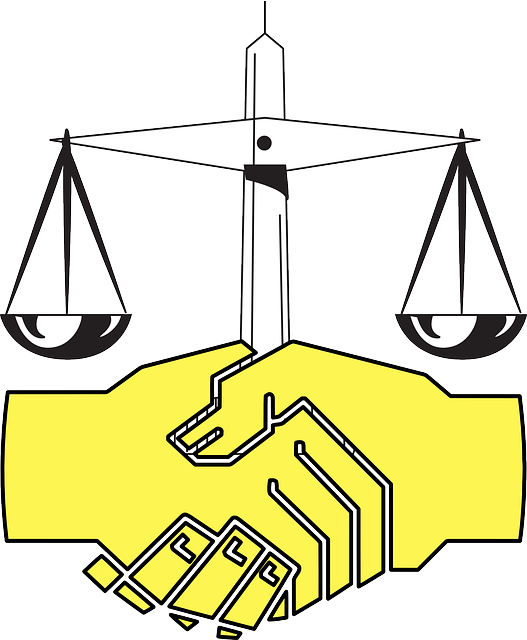The executor, a crucial figure in probate, manages and distributes the deceased's estate according to their will. Key responsibilities include acting as trustee, administering assets, paying debts and taxes, maintaining detailed records, filing legal documents, seeking professional advice, and ensuring a smooth transition for families during an emotionally challenging time. Efficient estate management, centered around the executor's strategic practices and proactive measures, ensures timely distribution of assets according to the deceased's wishes. This involves meticulous document preparation, strong communication among stakeholders, and leveraging modern technology to streamline the process and reduce stress on all involved parties.
Efficiently managing an estate during probate is a complex task, but with careful planning, it can be a smooth process. This comprehensive guide delves into the essential aspects of probate administration, focusing on the executor’s crucial role and responsibilities. From understanding document preparation and organization to effective communication, these strategies empower executors to navigate the legal landscape successfully. By implementing best practices, executors can ensure a seamless transition, honoring the deceased’s wishes while minimizing potential disputes.
- Understanding the Executor's Role: Responsibilities and Obligations
- Efficient Estate Management: Strategies for a Seamless Probate Process
- Document Preparation and Organization: A Key to Success
- Communicating and Collaborating: Building a Supportive Network During Probate
Understanding the Executor's Role: Responsibilities and Obligations

The role of an executor is a vital part of probate, playing a crucial role in managing and distributing the deceased’s estate. Executors are responsible for ensuring that all legal requirements and wishes expressed in the will are fulfilled. This includes acting as a trustee, overseeing the administration of assets, paying debts and taxes, and distributing remaining assets according to the terms of the will.
Their obligations extend to maintaining detailed records, filing necessary documents with courts or government agencies, and seeking professional advice when required. They must navigate complex legal procedures while considering the best interests of all beneficiaries. A successful executor balances these responsibilities, ensuring a smooth transition during what can be an emotionally challenging time for families.
Efficient Estate Management: Strategies for a Seamless Probate Process

Efficient Estate Management is crucial for a seamless probate process, ensuring that assets are distributed in accordance with the deceased’s wishes as quickly and smoothly as possible. The executor, who is responsible for overseeing the entire probate, plays a pivotal role here. They must not only understand the legal requirements but also implement strategic practices to streamline the administration. This includes organizing financial records, identifying and valuing all assets, and managing any outstanding debts or liabilities.
By prioritizing clear communication, maintaining thorough documentation, and utilizing modern technology where applicable, the executor can navigate the complex process with ease. Regular updates to interested parties, efficient filing systems, and digital tools for record-keeping are strategies that promote transparency and minimize potential delays. Such proactive measures contribute to a more peaceful and less stressful experience for all involved, allowing the estate to be settled in a timely manner.
Document Preparation and Organization: A Key to Success

Efficiently managing an estate during probate begins with meticulous document preparation and organization. The executor, tasked with fulfilling the deceased’s wishes as outlined in their will, must meticulously gather, organize, and catalog all relevant legal and financial documents. This includes everything from property titles and bank statements to insurance policies and tax returns. A well-organized paper trail not only simplifies the probate process but also ensures that all assets are accounted for and distributed according to the testator’s instructions.
By maintaining a comprehensive and easily accessible collection of documents, the executor can navigate the complexities of probate with greater ease. Digital organization tools and secure online storage can further enhance this process, allowing for quick access to vital information from anywhere at any time. This proactive approach to document preparation and organization is a cornerstone of successful estate management during probate, ensuring that the executor’s duties are carried out efficiently and effectively.
Communicating and Collaborating: Building a Supportive Network During Probate

Effective communication and collaboration are essential aspects of managing estates efficiently during probate. The process can be complex and emotionally charged, making it crucial for the executor to build a supportive network. Engaging with various stakeholders—including family members, legal professionals, financial advisors, and tax specialists—is vital. Open lines of communication facilitate better decision-making, ensuring that everyone is informed about the estate’s progress and any changes in plans.
Collaborating with this network allows for a more streamlined probate process. By sharing responsibilities and leveraging each other’s expertise, the team can efficiently navigate legal, financial, and tax complexities. This cooperative approach not only reduces stress on the executor but also ensures that the deceased’s wishes are respected and carried out accurately, leading to a smoother transition for all involved parties.
Efficiently managing an estate during probate requires a thorough understanding of the executor’s role, strategic planning, meticulous documentation, and effective communication. By fulfilling their duties competently, executing sound strategies, and maintaining open lines of collaboration, executors can navigate the probate process with ease, ensuring a seamless transition for all involved parties. Remember, proper organization and clear communication are key to a successful and swift distribution of the estate.
